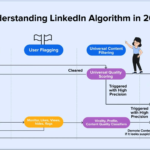Generative Artificial Intelligence (genAI) gained widespread attention with the launch of ChatGPT in 2022, prompting immediate interest from users across the information industry. Early tools, however, were constrained by limited use cases and often exhibited low reliability. One significant challenge businesses face in adopting genAI is the lack of in-house expertise, as the number of ready-to-use genAI applications remains relatively small. This expertise gap makes it difficult for companies, especially in specialized sectors, to find suitable genAI solutions that can be seamlessly integrated into their operations.
Key Technologies
The main text-based technology underpinning genAI is Large Language Models (LLMs). However, the challenges and resources required to create an LLM place it out of reach for most companies. Today, businesses looking to implement genAI can choose from available LLMs for customization. Access costs have dropped significantly, making LLMs affordable for nearly all industries.
For companies without the necessary skills or desire to develop their own systems, out-of-the-box genAI functionality is now available across many software platforms. These solutions require little to no special expertise, offering genAI tools ready for everyday use.
genAI in 2024: From Testing to Integration
– 2023: The year genAI was tested by companies and industries across sectors.
– 2024: The year genAI becomes integrated into the creation of solutions, improving both customer experience and operational efficiency.
Generative AI’s ability to create content across multiple mediums—text, images, and even video—has piqued the interest of professionals across fields. According to Forrester’s AI Pulse Study (September 2023), 70% of B2B companies are currently using genAI, with an additional 20% exploring its potential.
The Importance of Data Quality
The effectiveness of genAI tools depends heavily on the quality of data. A common saying applies: ‘garbage in, garbage out.’ The main limitations companies face with genAI stem from the quality of their own data.
genAI brings unprecedented efficiency to data management, and here’s why:
– Speed, Scale, and Complexity: genAI uses structured and unstructured data at a new level of speed and scale. Traditional business operations rely on event-driven systems to organize records, while genAI allows companies to visualize and process vast amounts of data, including types that many companies have not previously worked with.
– Unprecedented Insights: genAI provides businesses with new ways to generate insights. Traditional data teams manage data through reports and dashboards. However, with genAI, businesses have access to large datasets and new capabilities for responding to user queries in real-time. This creates challenges in predicting what data needs to be cleaned or curated.
Security, Privacy, and Permissions
Security and privacy concerns around data management are key obstacles to the adoption of genAI for many businesses. Traditional business applications rely on data governance to manage data privacy and ensure compliance with regulations. However, the genAI model introduces a new level of uncertainty:
– Once training data is acquired, it becomes difficult to control user access to specific datasets.
– There is no established standard for linking genAI models back to source data, creating heightened levels of risk.
– Forrester’s AI Pulse study highlights data privacy and security concerns as the biggest barriers to B2B companies using genAI.
Ensuring Data Quality in genAI
The data challenges presented by genAI necessitate a new approach to data quality. Businesses must rethink their data management strategies and teams must adopt new skills. Key factors include:
1. Collaboration Between AI and Business Insight: A strong relationship between AI systems and business insight is critical for producing reliable answers from genAI tools.
2. Expanded Role for Data Protection: Data protection must evolve to provide transparency in terms of the accuracy and truthfulness of the outputs generated by genAI systems.
3. Data Governance: Data governance needs to shift from cleaning discrete data to managing ongoing discussions, including input from genAI-generated suggestions and responses.
Join Us at Forrester B2B North America Summit 2024
These topics, along with many others, will be discussed at the Forrester B2B North America Summit, taking place from May 5-8, 2024 in Austin, Texas. Our presentation, ‘Is Good Data Relevant to genAI Beliefs?’, will explore the importance of data quality in ensuring the success of genAI implementations. Attendees can also schedule one-on-one sessions, and Forrester Decisions clients can request training on these or related topics at any time.



